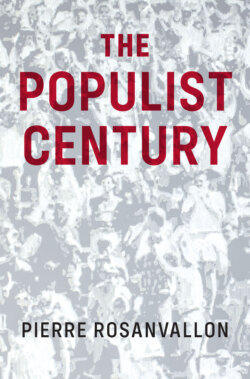Читать книгу The Populist Century - Pierre Rosanvallon - Страница 18
2 A THEORY OF DEMOCRACY: DIRECT, POLARIZED, IMMEDIATE
ОглавлениеPopulisms function from within the perspective of an effort to regenerate democracy. From that standpoint, they undertake to prosecute existing democracies as these are generally practiced and theorized – let us call them liberal representative democracies. They are liberal in the sense that they have set up procedures and institutions to ensure against the risk of tyranny on the part of majorities; guarantees protecting the integrity and autonomy of individual persons occupy a central place. In most countries, this entails constitutional arrangements that guarantee individual rights, either by framing legislative power to that end or by establishing independent institutions designed to exert control over executive power or even to exercise some of its prerogatives. These democracies are representative in that they are based on the idea that the power of the people will be limited, with some exceptions, to the process of selecting and confirming leaders through elections. The populist vision of democracy seeks to offer an alternative that challenges both the liberal and the representative conceptions as diminutions of the democratic ideal.
Leaders such as Viktor Orbán and Vladimir Putin have thus repeatedly presented themselves as champions of a break with liberal democracy, implying that an open conflict between two competing conceptions of the democratic project exists today. Among theorists of democracy, we find Chantal Mouffe calling on her readers “to understand that liberal democracy results from the articulation of two logics which are incompatible in the last instance”;1 she invites us to stop identifying democracy with the rule of law and the defense of human rights – as neoliberalism does, in her view – and to restore the principle of collective sovereignty to the foreground. Hence the link between the aspiration to a populist radicalization of democracy and the intellectual stigmatization of a societal and “human-rights-ist” vision that is accused of privileging the cult of the individual and of minorities at the expense of the concern for affirming the sovereignty of the people. Hence, also, the positive theorization of the illiberal character of the populist project as the condition for a more authentic democracy (we shall return at length to this point in the concluding part of this book).
On this basis, the populist conception of democracy presents three characteristics. It seeks first of all to privilege direct democracy, calling in particular for the multiplication of referendums initiated by the people. Next, it defends the project of a polarized democracy, denouncing the non-democratic character of unelected authorities and of constitutional courts. Finally, it exalts – and this is the key point – the immediate and spontaneous expression of popular opinion.
